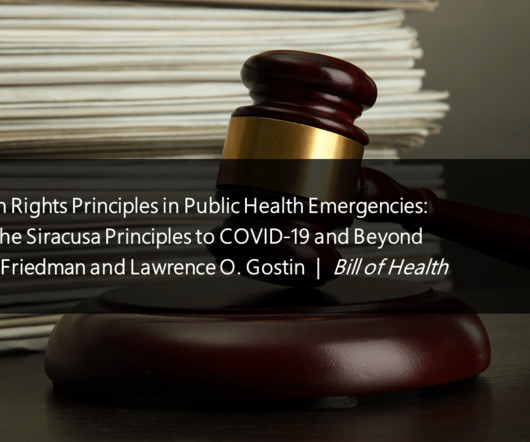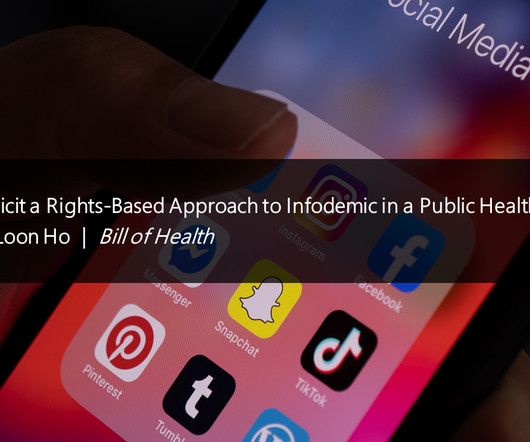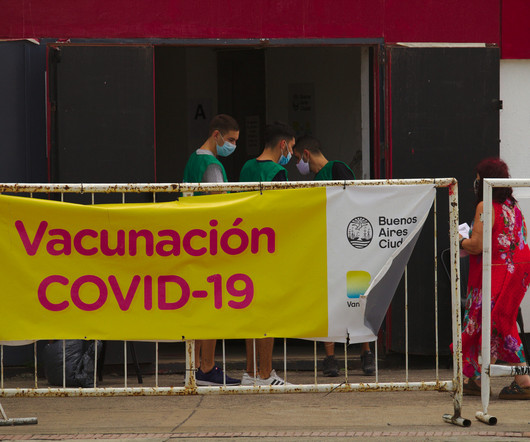Non-State Actors and Public Health Emergencies
Bill of Health
NOVEMBER 2, 2023
By Rossella De Falco Strong, well-coordinated and resilient public health care services play a vital role in preventing and responding to public health crises. What are, however, the specific legal and ethical implications of involving private actors in health care vis-à-vis public health emergencies?





















Let's personalize your content